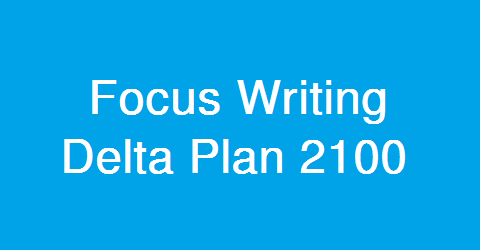Delta Plan Bangladesh: A Vision for Sustainable Development and Resilience
The Delta Plan Bangladesh (DPB) 2100 is a comprehensive and ambitious initiative that aims to tackle the challenges posed by climate change, natural disasters, and population growth in the low-lying and deltaic regions of Bangladesh. This long-term strategic plan envisions transforming the country into a prosperous, climate-resilient, and environmentally sustainable nation. The Delta Plan recognizes the significance of the country's unique geographical features, with numerous rivers, estuaries, and a vast delta, and aims to harness the potential of these resources while protecting the environment and enhancing the livelihoods of its people. This essay explores the objectives, key features, implementation strategies, and potential impact of the Delta Plan Bangladesh.
Objectives of the Delta Plan Bangladesh:
The primary objectives of the Delta Plan Bangladesh 2100 can be summarized as follows:
1. Climate Resilience:
With Bangladesh being one of the most vulnerable countries to climate change, the Delta Plan focuses on enhancing resilience to the adverse effects of climate change, including sea-level rise, cyclones, and flooding.
2. Economic Growth:
The plan aims to foster sustainable economic growth and development, particularly in the deltaic regions, by leveraging the country's abundant water resources for agriculture, fisheries, and other economic activities.
3. Environmental Protection:
Recognizing the importance of preserving the natural environment, the Delta Plan seeks to strike a balance between economic development and environmental conservation.
4. Water Resource Management:
The plan emphasizes efficient management of water resources, including river systems, to reduce the risk of water-related disasters and ensure optimal utilization for various purposes.
5. Livelihood Enhancement:
By promoting agriculture, aquaculture, and sustainable livelihoods, the plan aims to improve the quality of life for people living in the deltaic regions.
Key Features of the Delta Plan 2100:
The Delta Plan Bangladesh is characterized by several key features that set it apart from traditional development strategies:
a. Long-Term Perspective:
The Delta Plan takes a long-term outlook, spanning 50 years, and is divided into three 10-year perspective plans. This ensures a consistent and sustained effort toward achieving the set objectives.
b. Cross-Sectoral Approach:
The plan adopts a cross-sectoral approach, involving various ministries, agencies, and stakeholders to ensure comprehensive planning and implementation.
c. Participatory Process:
The formulation of the Delta Plan involves extensive consultations with local communities, experts, NGOs, and international partners, ensuring that diverse perspectives are considered.
d. Knowledge and Technology Integration:
The plan incorporates scientific research, data analysis, and advanced technology to make informed decisions and develop innovative solutions.
e. Adaptive Management:
Given the uncertainties associated with climate change and other dynamic factors, the Delta Plan embraces an adaptive management approach to adjust strategies as needed over time.
Implementation Strategies:
To achieve its goals, the Delta Plan 2100 employs the following key implementation strategies:
I. Infrastructure Development:
The plan focuses on building critical infrastructure, such as embankments, flood protection systems, drainage networks, and irrigation facilities to manage water resources effectively.
ii. Ecosystem-based Adaptation:
Encouraging ecosystem-based adaptation measures, such as afforestation, wetland conservation, and mangrove protection, to enhance natural resilience and mitigate climate impacts.
iii. Capacity Building:
The plan emphasizes capacity building and knowledge transfer at various levels, from local communities to government institutions, to ensure effective implementation and management.
iv. Public-Private Partnerships (PPPs):
Engaging the private sector through PPPs fosters innovation, efficiency, and investment in key sectors such as agriculture, infrastructure, and renewable energy.
v. International Cooperation:
Bangladesh seeks collaboration with international partners, donor agencies, and organizations to mobilize financial and technical support for implementing the Delta Plan.
Potential Impact of the Delta Plan Bangladesh:
The successful implementation of the Delta Plan Bangladesh could yield significant positive impacts:
1. Resilient Economy:
A climate-resilient economy would be better equipped to withstand the adverse effects of climate change, ensuring sustained economic growth and poverty reduction.
2. Improved Livelihoods:
By enhancing agricultural productivity, fisheries, and other livelihood options, the plan would uplift the living standards of people in the deltaic regions.
3. Reduced Vulnerability:
Implementing adaptive measures and infrastructure development would decrease vulnerability to floods, cyclones, and other disasters, safeguarding lives and property.
4. Environmental Conservation:
The emphasis on ecosystem-based adaptation and conservation efforts would protect biodiversity, preserve natural habitats, and enhance ecosystem services.
5. International Recognition:
The success of the Delta Plan could position Bangladesh as a global leader in climate adaptation and sustainable development, garnering recognition and support from the international community.
The Delta Plan 2100 of Bangladesh represents a forward-thinking and inclusive approach to address the complex challenges faced by the country due to climate change and rapid development. By promoting climate resilience, sustainable development, and environmental conservation, the plan offers a path toward a brighter and more secure future for Bangladesh and its people. However, successful implementation will require unwavering commitment, effective governance, financial support, and active participation from all stakeholders. As the Delta Plan 2100 unfolds over the coming decades, it is hoped that it will serve as a model for other nations grappling with similar issues and pave the way for a more sustainable and resilient world.












No comments